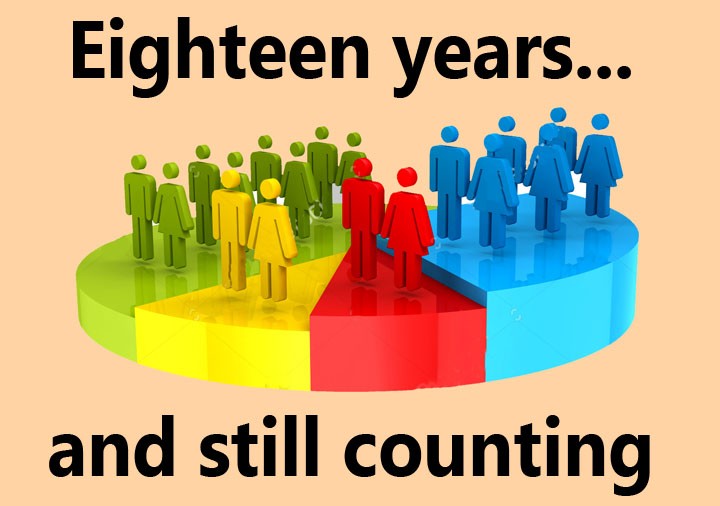
Underscoring the importance of a census and questioning the assumptions and reasons being cited for this postponement

Sometimes it seems as if our rulers actually believe in some divine power running the country. No wonder, they have not felt this need to find out how many people live in Pakistan. How exactly do we expect to make our assessments and policies to address all important needs of our population has been surely left to the doings of some spiritual powers.
If not that, how come the country has not had a census in the last eighteen years? The last one was held in 1998 after a lapse of seven years (all previous censuses were held every ten years pretty regularly).
There was an effort to hold a household census in 2011 which remained inconclusive because of political reasons and is believed to have been set aside as rejected. There have also been suggestions that there is no need to have a census when there is already a Nadra database. But experts have pointed out that both the Nadra and the household surveys are insufficient and cannot replace a national census. Apart from planning for crucial areas like health, education and basic needs of the population, a census helps in delineating the political and administrative boundaries of the country.
Somewhere someone projected March 16 as the deadline for conducting the national census. A little before the announced date, political wrangling began and ended with the Council of Common Interests postponing it indefinitely. The major reasons cited at the CCI include non-availability of the armed personnel and teachers as well as the non-registration of Afghan refugees.
It is unbelievable how easily we put off this crucial exercise as if it didn’t matter at all. Actually, it is with matters like these that we expose the flimsiness of our federation and our centralised system, despite all claims of devolution of powers to the federating units, comes to haunt us.
Today’s Special Report is about the postponement of the national census. It aims to underscore the importance of a census and to question the assumptions and reasons being cited for this postponement. Perhaps what is needed is modern technological methods to conduct surveys that lessen this dependence on manpower. Perhaps there is a need to prolong the period in which the census is successfully completed. But what is required most urgently is the will to get this important exercise completed instead of constantly depending on divine help.